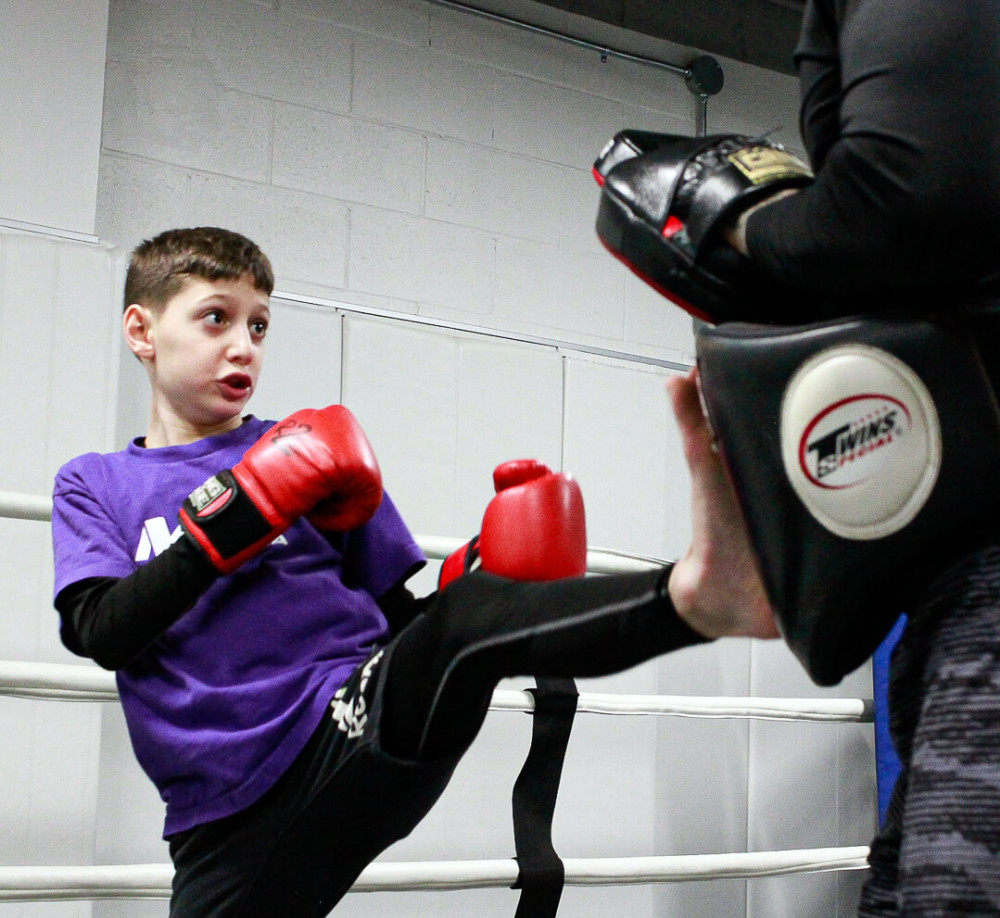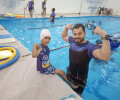
Kickboxing involves a combination of martial arts techniques and aerobic exercises
2024-04-28 - Kick-BoxingKickboxing isn't just for adults. It's a fantastic activity
for kids that not only teaches them self-defense skills but also promotes
physical fitness, mental discipline, and confidence. In a world where childhood
obesity rates are on the rise and sedentary lifestyles are becoming the norm,
kickboxing offers a dynamic solution to get kids moving and engaged in a fun
and challenging way.
Understanding Kickboxing for Kids
Kickboxing involves a combination of martial arts techniques
and aerobic exercises. Unlike traditional martial arts, kickboxing is more
focused on striking with punches and kicks rather than grappling or wrestling.
For kids, it's often taught in a safe and controlled environment where they can
learn the basics of stance, footwork, and striking techniques.
Physical Fitness and Kickboxing
One of the primary benefits of kickboxing for kids is its
ability to improve physical fitness. Through regular training sessions,
children develop strength, flexibility, agility, and cardiovascular endurance.
The fast-paced nature of kickboxing keeps them constantly moving, which helps
burn calories and build lean muscle mass.
Mental Benefits of Kickboxing for Kids
In addition to physical fitness, kickboxing also offers
numerous mental benefits for kids. It teaches them discipline, focus, and
self-control as they learn to follow instructions and master new techniques. As
they progress in their training, they gain confidence in their abilities and
learn to face challenges with resilience.
Safety Considerations
While kickboxing can be a safe activity for kids, proper
supervision and protective gear are essential. Parents should ensure that their
children are training under the guidance of qualified instructors who
prioritize safety. Additionally, wearing appropriate gear such as gloves,
mouthguards, and shin guards can help prevent injuries during sparring and
drills.
Getting Started: Tips for Parents
For parents interested in enrolling their kids in kickboxing
classes, it's essential to do some research beforehand. Look for reputable
martial arts schools or fitness centers that offer structured kids' programs
taught by experienced instructors. Creating a supportive environment at home
where kids feel encouraged to pursue their interests can also contribute to
their success in kickboxing.
Setting Realistic Expectations
It's important for both parents and kids to understand that
progress in kickboxing takes time and dedication. Setting realistic
expectations and focusing on the journey rather than the end goal can help
prevent frustration and disappointment. Encourage kids to persevere through
challenges and celebrate their achievements along the way.
Incorporating Kickboxing into Daily Routine
Balancing kickboxing training with school and other
activities can be challenging, but consistency is key to seeing results. Help
kids establish a regular training schedule that fits into their daily routine
and prioritize their commitments accordingly. By making kickboxing a regular
part of their lives, they'll reap the benefits of improved physical and mental
well-being.
Fun and Social Aspects of Kickboxing
Kickboxing isn't just about fitness and skill development;
it's also a lot of fun! Kids have the opportunity to make new friends and bond
with their peers through shared experiences in class. Participating in
tournaments and events can further enhance their sense of camaraderie and
sportsmanship.
Nutrition and Hydration
To support their physical activity levels, kids need to fuel
their bodies with nutritious food and stay hydrated. Encourage them to eat a
balanced diet rich in fruits, vegetables, lean proteins, and whole grains.
Remind them to drink plenty of water before, during, and after training
sessions to stay hydrated and energized.
Overcoming Challenges
Like any sport or activity, kickboxing comes with its own
set of challenges. Kids may face setbacks or obstacles along the way, but it's
important to teach them how to overcome adversity with resilience and
determination. By embracing failure as an opportunity to learn and grow,
they'll develop valuable life skills that extend far beyond the dojo.
Monitoring Progress
As kids continue their kickboxing journey, it's essential to
monitor their progress and celebrate their accomplishments. Keep track of their
physical improvements, such as increased strength, speed, and coordination, as
well as their personal growth in terms of confidence and self-esteem.
Recognizing their hard work and dedication motivates them to keep pushing
themselves further.
Encouraging Lifelong Fitness Habits
Ultimately, the goal of kickboxing for kids is not just to
teach them martial arts skills but to instill a love for physical activity that
lasts a lifetime. By nurturing their passion for fitness from a young age,
parents can help their children develop healthy habits that will benefit them
well into adulthood.
Testimonials from Parents and Kids
"My daughter has been doing kickboxing for a year now,
and the transformation in her confidence and discipline is incredible. It's not
just about the physical benefits; it's helped her become more focused and
determined in all areas of her life." - Sarah, Parent
"I love kickboxing because it makes me feel strong and
powerful. Plus, I've made so many new friends in class, and we always have a
blast together!
Conclusion
Kickboxing is an excellent way for kids to stay physically
fit, mentally sharp, and socially engaged. By participating in kickboxing
classes, children not only develop essential martial arts skills but also build
confidence, discipline, and resilience that will serve them well in all aspects
of their lives.












